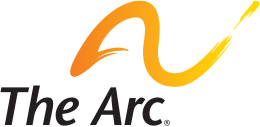ISSUE
People with intellectual and/or developmental disabilities and their families often have a hard time finding and coordinating the services, supports, and resources they need to ensure a high quality of life and full inclusion in the community. Service systems can be complex, challenging to navigate and are often critically underfunded. Determining funding sources for necessary services can be extremely difficult.
In many areas of the country, resources for support coordination, also referred to as service coordination, are limited or have restrictive financial or diagnostic eligibility criteria. Some support coordinators have large “caseloads” with more people than they can fully serve. There may be high staff turnover. Support coordinators may not be aware of universal and natural support systems that are available to all citizens.
POSITION
People with intellectual and/or developmental disabilities and their families must have ongoing access to effective, responsive, affordable, reliable, and culturally appropriate individual service coordination as needed.
As support coordinators help design, coordinate, and monitor supports and services, they must:
- Follow the wishes and needs of each individual through a person-centered planning process;
- Enable people to explore a full range of options, to include provider options, then identify and access appropriate services and supports;
- Develop formal and informal supports (i.e., circles of support) around the individual rather than try to fit the person into existing services because of availability. Informal supports are natural supports such as family, friends, co-workers, and neighbors;
- Represent and advocate for the interests, preferences and dreams of the individual and, when appropriate, the family;
- Assist individuals and families in independently coordinating their own supports and services if they so desire, and in hiring someone of their choice;
- Be free from conflicts of interest;
- Support the development and expression of self-determination and self-advocacy; and
- Share information about desired supports and services as well as system gaps with funders so that systems become more responsive to people’s desires and needs.
Support coordination must be funded at a level that supports an appropriate caseload. Support coordinators must be provided with ongoing skills development; opportunities to build capacity through peer networks; and equipped with up to date, unbiased knowledge of community resources.
Rev’d 2015
Joint statement with the American Association on Intellectual and Developmental Disabilities (AAIDD).
1“People with intellectual disability and/or developmental disabilities” refers to those defined by AAIDD classification and DSM IV. In everyday language, they are frequently referred to as people with cognitive, intellectual and/or developmental disabilities although the professional and legal definitions of those terms both include others and exclude some defined by DSM IV.






